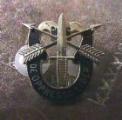One thing we should have learned is that in this globalized world, it is far easier (and getting more so daily) for a group of individuals to conduct an act of war against a state than it is for a state to wage war against a group of individuals. This is one of the newly important forms of 'sanctuary' that we must learn to deal with.
When we simply counterattack and wage war in the sovereign nation in which this group resides we risk a broad range of very dangerous blow-back. As I advised a boss once "Sir, you don't want to risk strategic defeat when the greatest possibe gain is merely a tactical one."
We have been very focused of late in achieving such tactical victories in Afganistan over AQ and the Taliban. They make our soldiers feel like they are kicking some butt, they make our populace feel like we are taking it to the enemy; but they also validate much of the propaganda about our true nature and intention, join elements of the targeted populace to bond together over their historic objections to face a common threat, and also destabilize the legitimacy of the government who's sovereignty we have violated in the eyes of their populace.
Arguably the three most unstable states in the middle east are Iraq, Afghanistan, and Pakistan. To think that our efforts to wage war against a group of guys hiding within sovereign states has not contributed significantly to that instability is naieve at best.
So, in addition to getting the legal status straight, it is EXTREMELY important to take operational and strategic planning out of the war construct and instead place it within a holistic strategy-driven, policy-based construct that seeks to stabilze these fragile states through a program of engagement that includes tailored programs for each of these violent groups to remove the problems. Simply conducting a COIN or CT or any other war campaign won't cut it.
Back in the day, the US military routinely conducted military operations in areas of conflict without demanding that the entire nation join them in a state of war. Somewhere we lost sight of that. We've come to believe that if our military is fighting then we must support them by ensuring that our entire nation is at war. I thought it was supposed to be the opposite. That a few of us, some 1% of the total populace, volunteered to train, sacrafice, go where we need to go, do what we need to do, so that the nation can remain at peace.
So, put the nation at peace, develop a grand framework for our foreign policy, identify where our critical national interests lay, seek understanding of the dynamics of what is really going on in those critical areas and how our actions as a nation are contributing to those dynamics; then design State Department led holistic programs of enagement that are built around the changes we made to our own behavior first, and then supplemented by the behavior modification we impose on others. This works in the Middle East, it works in Mexico, it works everywhere. But it is complicated; so instead we respond instinctively instead of intelectually.
It gives our major opponents a good chuckle as they watch us flounder. China thinks in terms of hundreds and thousands of years, and they have to watch in wonder as we flail away in the moment. I'd really like to wipe that smile off of their faces. We aren't down and out by a long shot, we just need to focus a little less on fighting small wars, and a little more on crafting and implementing big strategy. We can do this.







 - of the paper kind only), I'll expand a bit.
- of the paper kind only), I'll expand a bit.


Bookmarks